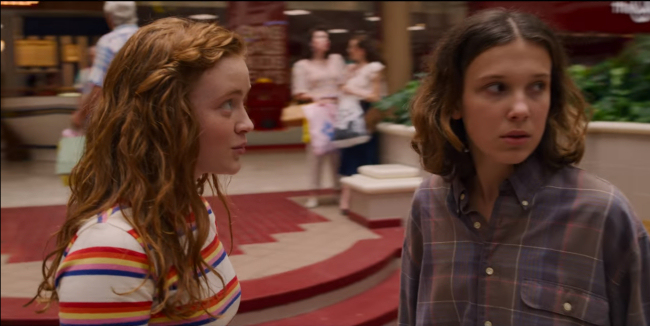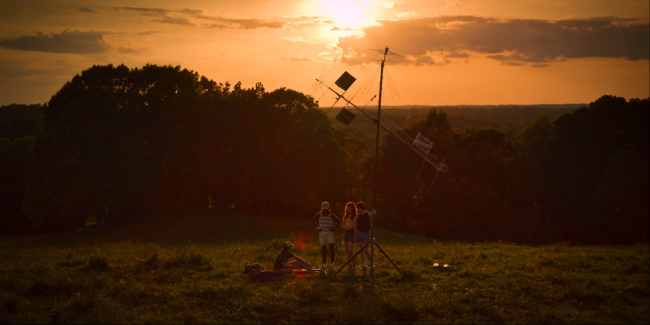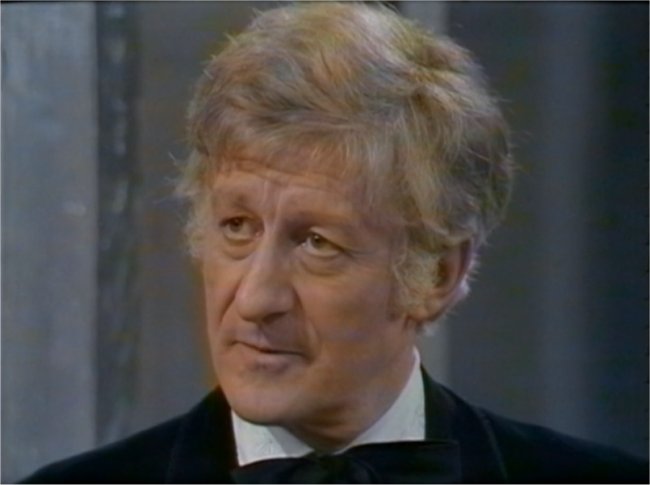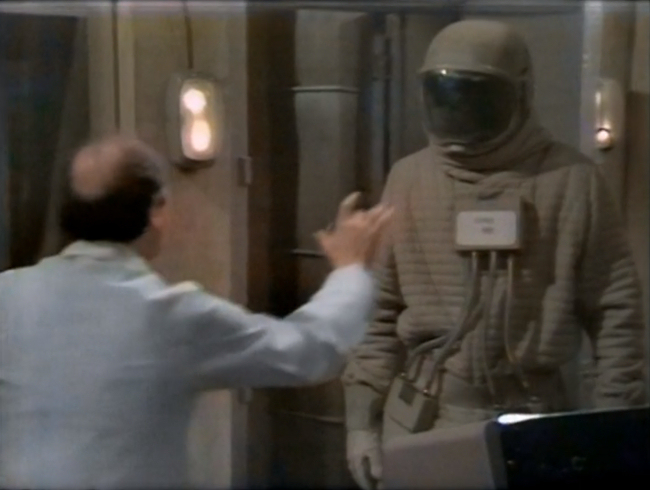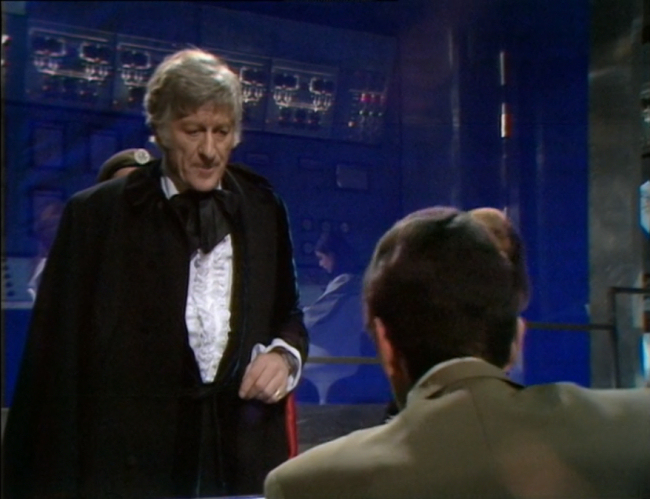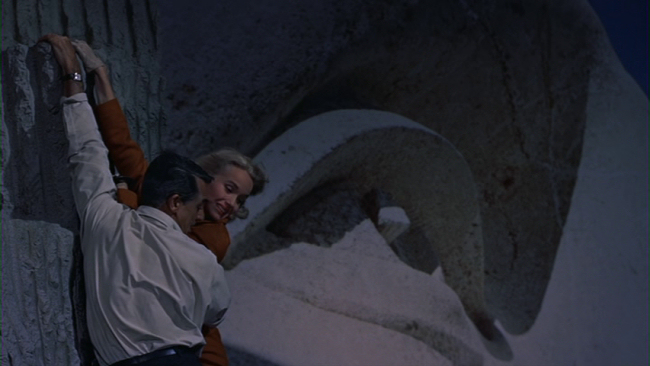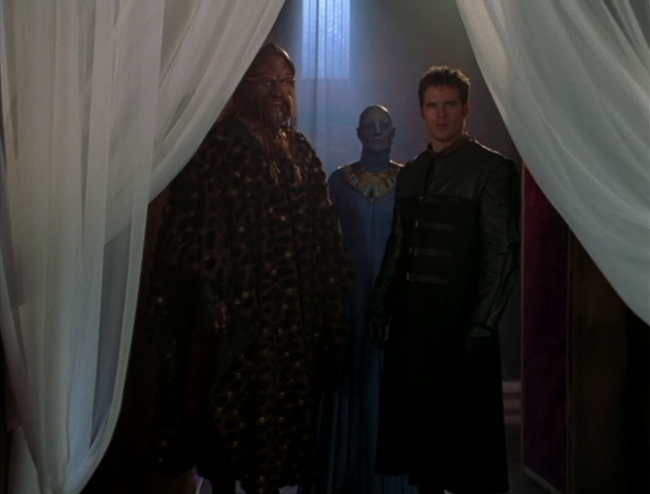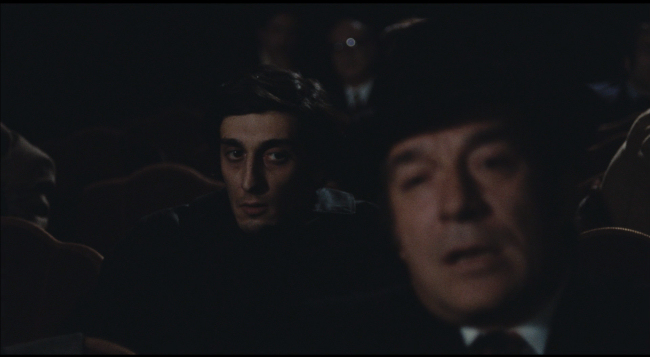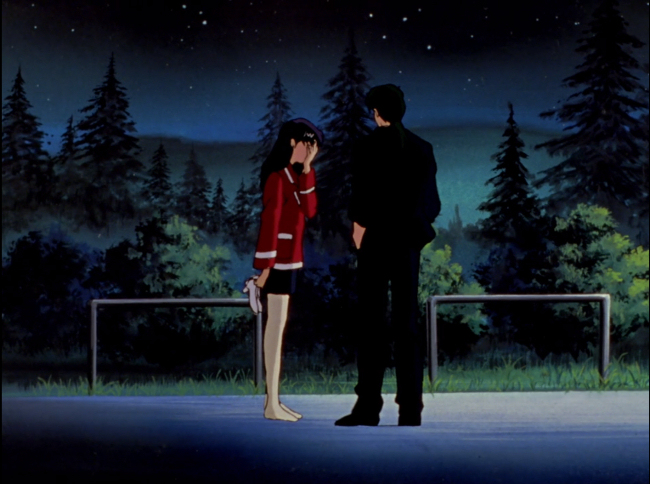
Sometimes you can't see the mood altering pulsars for the dried food rectangles. Or what Farscape's American astronaut, John Crichton, calls crackers. In the grand scheme of things, you have to ask yourself, do crackers really matter?

Season 2, Episode 4: Crackers Don't Matter
Widely considered one of the best episodes of the whole series, if not the best, it finds our heroes behaving irrationally in a remarkably credible way. I don't think this could've been a first season episode because the kinds of dialogue and interaction on display seem like they could only have come from a cast and crew very comfortable and familiar with one another.

Set entirely aboard Moya, the episode begins with Crichton (Ben Browder) incredulous as some of the other crew return from grocery shopping with crates of what he quickly identifies as "crackers" and a blind alien (Danny Adcock) promising to fit Moya with a cloaking device.

Crichton reluctantly tests the device on his module and already there's some great back and forths among the cast. Claudia Black, who plays Aeryn, remarks on the DVD commentary on how two-shots are so much better for actors because you can see their real reactions to each other instead of reactions created with editing but there's a nice cut between two close-ups of Crichton and Aeryn here as she munches on crackers. She's compelled to laugh as Crichton piles up one incredulous observation after another and we can see in this episode the two are bonding in a way that goes quite beyond season one's incidental cuddling.

T'raltixx, the blind alien, says they have to go through a pulsar field to reach his planet. He also says the light from the pulsars has minor, psychologically altering effects on "lesser" species. Everyone on the bridge immediately asserts the light has no effect--except Zhaan (Virginia Hey) who spends most of the episode blissfully riding through multiple photogasms.
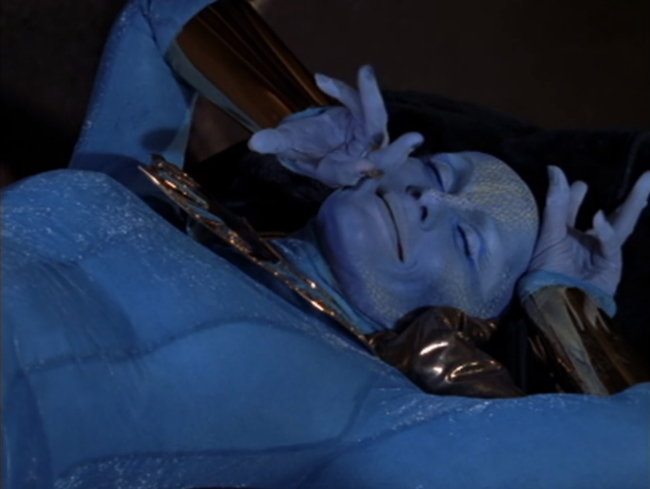
And then, very soon, everyone's trying to kill each other. But there are always strongly worded arguments justifying the fights--they work so well because the actors are totally committed to intensely irrational dialogue. Chiana (Gigi Edgley) becomes suspicious when Aeryn won't play a hologram recording of Scorpius (Wayne Pygram) for her. When Crichton suggests Aeryn should just go ahead and play the message, Chiana immediately wants to know why Crichton wants her to see it so bad. You can see complete sincerity in Gigi Edgley's suspicion and the scene is capped with Aeryn washing her hands of the issue, telling Chiana to watch, or don't watch, the recording, "I really don't care." She gives the line the slow, deliberately patient tone of someone speaking to a crazy person and it plays so well because of how earnest Chiana had seemed.
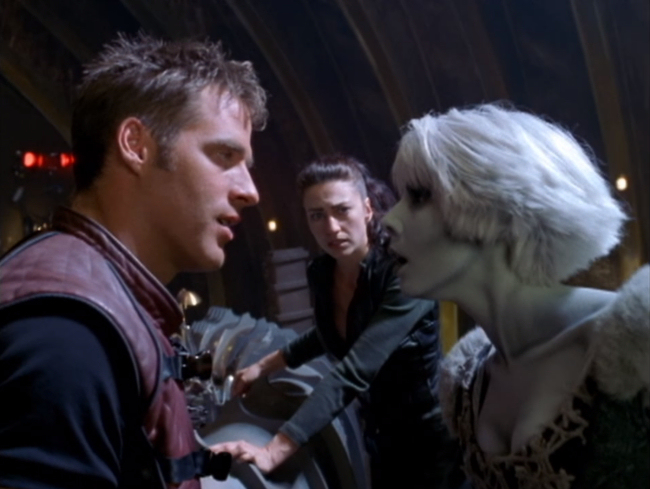
On Moya, sincerity comes with a certain amount of sarcasm so, in a gun battle between Crichton and Aeryn later, the dialogue comes with outright laughter at the very idea of not trying to kill one another. And, of course, there's the crackers.

Chiana, D'Argo (Anthony Simcoe), and Rygel (Jonathan Hardy) take charge of the precious food rectangles. When Crichton dares to suggest that there might just be bigger issues to worry about, the idea is so plainly absurd to the cracker guardians that they can only scoff at Crichton's pathetic attempt at manipulation.

The episode climaxes in a different direction of absurdity. There's kind of an Evil Dead 2 vibe as the plan becomes about Crichton wearing Zhaan's puke on his face to attack T'raltixx wielding a sword and shield. I really can't do it justice--everyone should experience "Crackers Don't Matter" at least once in their life.
. . .
This entry is part of a series I'm writing on Farscape for the show's 20th anniversary. My previous reviews can be found here (episodes are in the order intended by the show's creators rather than the broadcast order):
Season One:
Episode 1: Pilot
Episode 2: I, E.T.
Episode 3: Exodus from Genesis
Episode 4: Throne for a Loss
Episode 5: Back and Back and Back to the Future
Episode 6: Thank God It's Friday Again
Episode 7: PK Tech Girl
Episode 8: That Old Black Magic
Episode 9: DNA Mad Scientist
Episode 10: They've Got a Secret
Episode 11: Till the Blood Runs Clear
Episode 12: Rhapsody in Blue
Episode 13: The Flax
Episode 14: Jeremiah Crichton
Episode 15: Durka Returns
Episode 16: A Human Reaction
Episode 17: Through the Looking Glass
Episode 18: A Bug's Life
Episode 19: Nerve
Episode 20: The Hidden Memory
Episode 21: Bone to be Wild
Episode 22: Family Ties
Season Two:
Episode 1: Mind the Baby
Episode 2: Vitas Mortis
Episode 3: Taking the Stone

